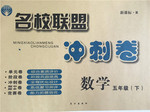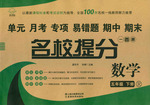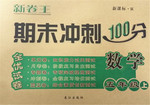题目内容
Besides news reports that tend to focus on war or election, Americans generally don’t hear much about people in other countries. One reason may be that very little foreign-language literature is translated into English. In the United States, just a few of the titles, mainly translations of foreign novels, short stories, or poetry, make it into English. However, a number of efforts have taken root to try to bring more global literature to US audiences.
The online magazine of international literature, Words Without Borders, was founded by Bard College in Annandale-on-Hudson, N.Y. The nonprofit site, now in its fifth year, offers modern writing from places such as Argentina, China and Italy, often for the first time in English. It gets about 200,000 page views per month and counts roughly 8,000 subscribers (订阅者) , more than one-quarter of whom live in the US.
“There’s a wave of interest right now,” says Jill Schoolman, publisher of Archipelago Books, a small nonprofit press in Brooklyn, N.Y., opened in 2003 to publish world literature in translation only. “People are hungry for ideas from other countries.”
Rainmaker Translations — a Las Vegas-based nonprofit — was formed two years ago to support the publication of more top-quality global writing here in the US. They put out their first three titles, translated from Arabic, Chinese, and Russian, in the spring of 2006 and plan to aid up to four more in the coming year.
In March, the Center for the Art of Translation, a nonprofit started in 1994 in San Francisco, will publish Two Lines World Library, focused on writing from some particular areas published over the last several decades.
Dalkey Archive Press, a century-old nonprofit publisher in Champaign, Illinois, has upped the number of translations on its publication list since 2003, from 25 percent to nearly 80 percent.
In recent years, more nonprofits have applied to the National Endowment for the Arts for help to publish literary translations. The agency is also trying to increase the availability of translated prose (散文) and poetry in the US, such as publishing partnerships with foreign governments.
1.The main purpose in founding the magazine Words Without Borders is __________.
A.to compete for page views and subscribers online
B.to get American literature better known to the world
C.to help advance nonprofit world literature translation
D.to introduce more world literature to readers in the US
2.What do the publishers mentioned in the passage have in common?
A.They mainly publish top-quality world literature in translation.
B.They don’t aim at making money by publishing global writing.
C.They provide their translation and publication services online.
D.They have published a number of literary works in translation.
3.Which of the following shows the proper order of the founding of the presses (出版社)?
DAP = Dalkey Archive Press CAT = Center for the Art of Translation
RT = Rainmaker Translations AB = Archipelago Books
A.DAP→CAT→RT→AB B.DAP→CAT→AB→RT
C.CAT→DAP→AB→RT D.CAT→DAP→RT→AB
4.Which of the following can be the best title for the passage?
A.World literature: Shared by the world
B.World literature: Loved by Americans
C.World literature: Founded in translation
D.World literature: Developed in styles
DBBC

 名校联盟冲刺卷系列答案
名校联盟冲刺卷系列答案 名校提分一卷通系列答案
名校提分一卷通系列答案 课程达标测试卷闯关100分系列答案
课程达标测试卷闯关100分系列答案 新卷王期末冲刺100分系列答案
新卷王期末冲刺100分系列答案
| |||||||||||||||||||||||||||||||||||||||||||||||||||||||||||